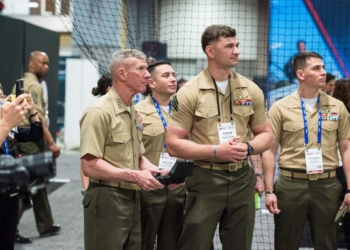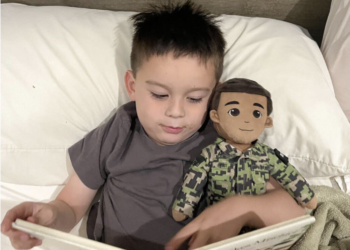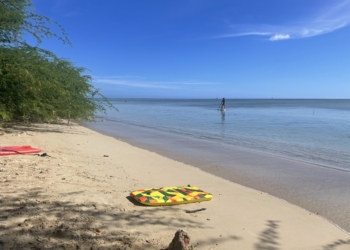
News of Russia’s war on Ukraine and Vladimir Putin’s murderous devastation reaches even the smallest ears around the globe. How should parents ― especially deployable parents in the military ― talk with children about war in Ukraine and Russia?
READ: Military families with ties to Ukraine reveal fears, strong emotions
Mother-of-two Miry Whitehill has faced similar conundrums. As the founder and executive director of Miry’s List, a Los Angeles-based nonprofit focusing on hospitality toward refugees, Whitehill’s young sons regularly hear about war and displacement.
“Why doesn’t that family have any beds in their rooms?” one son asked Whitehill after meeting U.S. military-connected Afghanistan refugees. She explained how they fled their home country with nothing. When he kept asking why, she realized that children need age-appropriate language and concepts to explain humanitarian crises.
One giant family
“I wanted to give my son information to help him understand what’s going on in the world,” Whitehill said. “Not to be up late at night worrying, but I wanted him to know how important these relationships he was forming with these nice people were, and how it formed his own sense of home.”
The result was Our World is a Family: Our Community Can Change the World, a freshly-released children’s book for ages 3 to 8. The refugee crisis in the Middle East spurred the book’s creation, co-written with Jennifer Jackson and illustrated by Nomar Perez. But Whitehill said that in recent history, “there is never a time where [refugees fleeing and resettling] has not been what’s happening.”
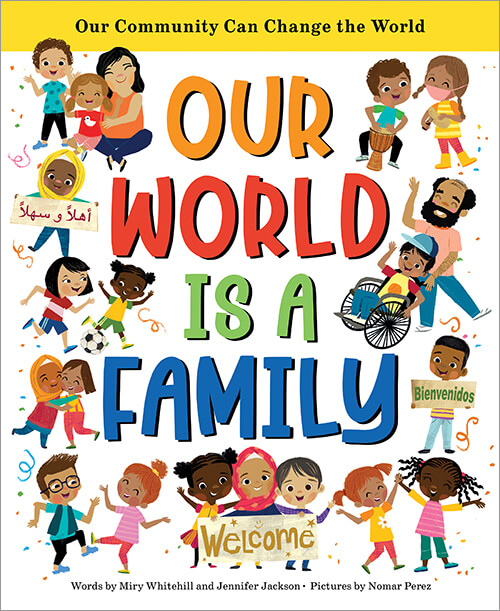
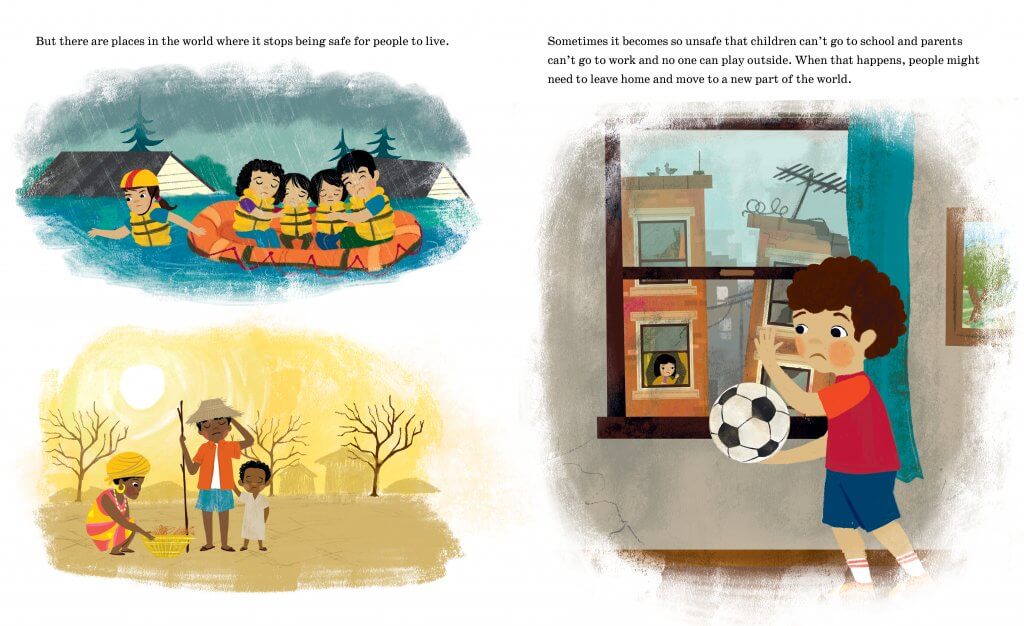
“We didn’t realize there would be this Ukrainian crisis the week of the book’s release,” she said. Still, the timing underscores the inevitability of children hearing about war and its impact.
The important thing is not to run from hard conversations about what’s happening in the world, said Amani Wells-Onyioha, operations director for a political strategies firm. There may be complex emotions, she said, but children learning to process fear, anxiety and concern is immensely valuable.
“It’s important to let kids of all ages be introspective and formulate their own opinions and values,” Wells-Onyioha said. “When you allow them to speak honestly about how they feel, that will allow them to be free-thinking adults.”
Appropriate honesty
So if your son or daughter asks about Russia and Ukraine, don’t change the subject. Ask them what they’ve heard and where. Use a gentle-yet-confident voice to explain that Russia has come to Ukraine without permission and is hurting and killing people there. Because of those bad things, millions of people are running away to find a safe place. And there are ways we can help them.

“Don’t scream and terrify your child,” Wells-Onyioha said. “But let them know what is happening, why it’s not right and that they are allowed to feel whatever they feel about it.”
If your child is mature enough and interested, she said, watch the news together and indicate your willingness to answer any questions they have. “It’s natural to feel sad when you find out innocent people are dying, and we should allow kids to feel those hard emotions that come with it,” Wells-Onyioha said.
Military children may have heightened fear about world events, given that one or both of their parents might have deployed to war zones in the past and may do so again. Whitehill recommends using that military child experience to help kids grasp what families are going through in Ukraine.
“Military kids know what it’s like to be the new kid in town, or even the country,” she said. “And they know what it’s like to have separated families for a while.” Ask them how that felt ― what were some things that helped them overcome those tough feelings? And how would they like to help Eastern European kids who are feeling the same way?
“Refugee resettlement is a bigger problem than any one person could ever solve,” Whitehill said. “But when my kids ask questions or see something frightening on the news, that is not the end for them.”
“Human connections are so powerful, and when we involve our kids in talking about Ukraine and helping and welcoming refugees, we are creating those opportunities for them.”
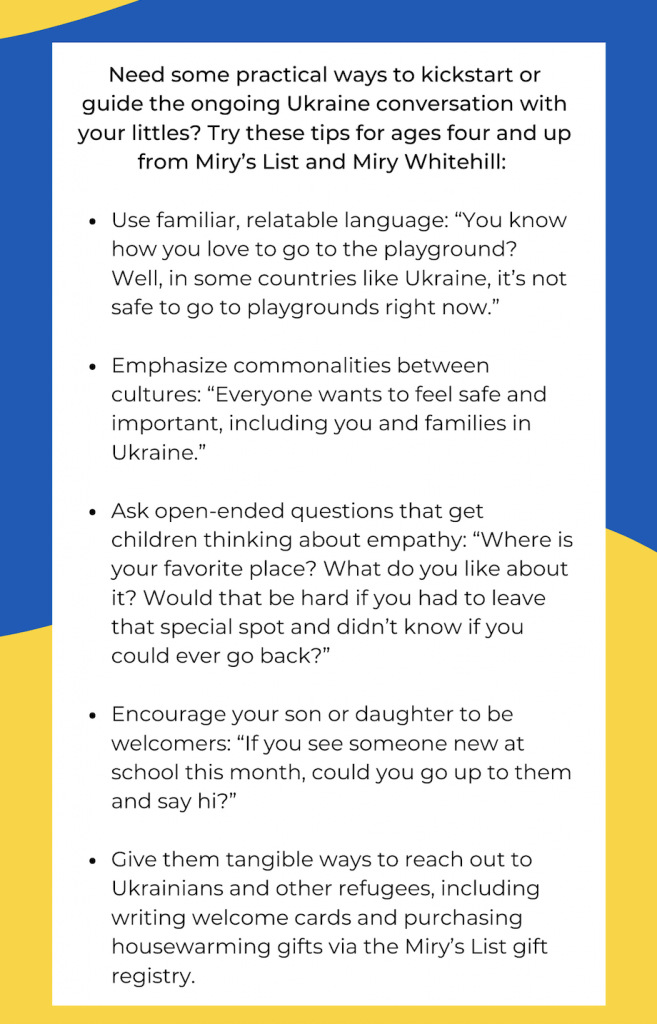
Read comments

















